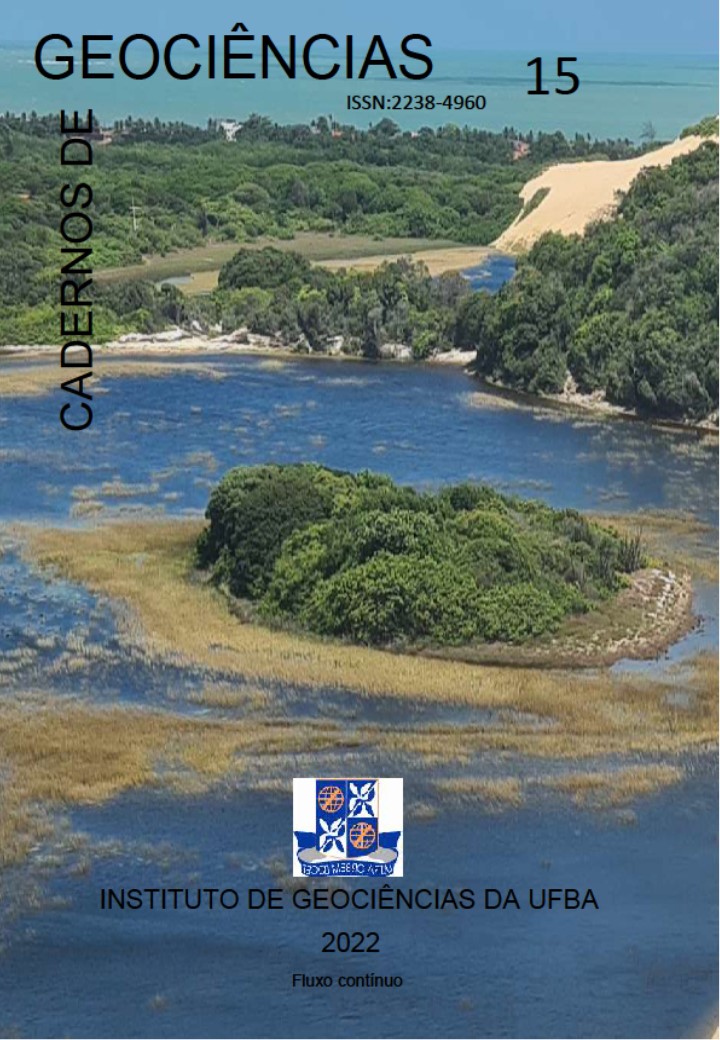The COMPLEXITIES OF THE STUDY OF GEOGENIC LITHIUM
Geogenic lithium and mental health
DOI:
https://doi.org/10.9771/geocad.v15i0.52065Keywords:
Medical Geology, Mental Health, Lithium elementAbstract
Lithium, geogenic, secondary is a chemical element that occurs in surface geochemical reservoirs, from the action of chemical weathering of mineral phases, carriers of this element. Supergene enrichment supplies this element to soils, sediments and water, that is, to surface geochemical reservoirs. Lithium is an element that brings several therapeutic benefits, among them the treatment of mental health disorders, such as bipolar affective disease, in the prevention of behavior changes, and may be related to some extent, in the reduction of suicide and violence.
Suicide is the tenth leading cause of death worldwide. Suicide rates vary greatly from country to country and from regions within a country. Brazil has one of the lowest suicide rates in the world, however these numbers have been increasing by around 30% in recent decades.
The relationship between lithium and mental health can be addressed by medical geochemistry, which is a new field of geology that investigates the distribution of geological materials and possible influences on human health. This article presents the difficulties of trying to relate the verified levels of geogenic Lithium, existing in the Northeast of Brazil, with the numbers of suicide statistics from surveys of the Brazilian health system.
Downloads
References
Cruz, M.J.M, Pena,C.S.P,Otero,O.M.F.,Neves,M.O.vGonçalves,M.V.P. Are there geogenic relationships for Lithium between geology, geochemical anomalies and low levels of violence in the region of Guanambi, State of Bahia, NE Brazil?. Brazilian Journal of Development, Curitiba, v.8, n.4, p.32155-32170, apr., 2022. DOI:10.34117/bjdv8n4-616.
Oliveira, P.; Zagalo, J.; Madeira, N.; Neves, O. Lithium in Public Drinking Water and Suicide Mortality in Portugal: Initial Approach. Acta Med. Port. 2019, 32, 47–52. DOI:0000-0002-2292-1463
Pena,L.S.(2021) Processos Geoambientais do Elemento Lítio nos Domínios Geológicos da Microrregião Guanambi, Centro-Sul da Bahia, Nordeste do Brasil.Dissetação de Mestrado. Pospetro UFBA.
Beurlen H, Thomas,R. , Silva,M.R.R.da , Müller,A., Rhede,D., Soares,D.R. (2014) Perspectives for Li- and Ta-Mineralization in the Borborema Pegmatite Province, NE-Brazil: A review. Journal of South American Earth Sciences.Volume 56, Pages 110-127. DOI:10.1180/minmag.2011.075.5.2703
Neves, M.O., Marques, J., Eggenkamp, H.G.M. (2020) Lithium in Portuguese bottled natural mineral waters—potential for health benefits? International Journal of Environmental Research and Public Health, 17(22), pp. 1–14, 8369. DOI:10.3390/ijerph17228369

